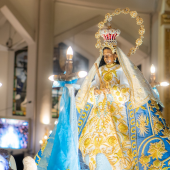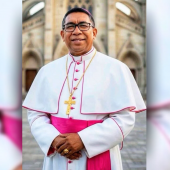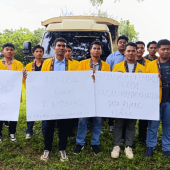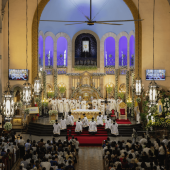Philippines: Renowned Urban Planner Urges Ethical Architecture to Prevent Disaster
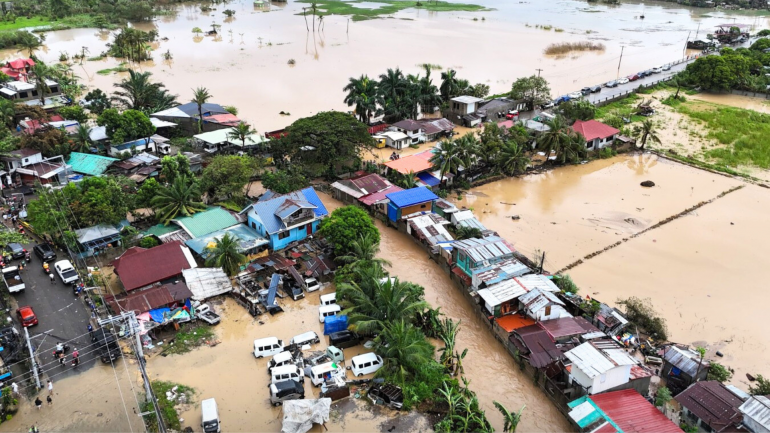
The Philippines recently experienced devastating floods caused by Typhoon Tino, which hit the Visayas on November 4, 2025. While the country was still reeling, another super typhoon, Uwan, struck Luzon, bringing storm surges, flooding, and mudslides. At least 232 people have died, more than 100 are missing, and scores injured. In total, about 2 million people were evacuated, with over 500,000 displaced.
Commenting on the destruction caused by these two deadly tropical cyclones, internationally renowned architect and urban planner Felino “Jun” Palafox highlighted the loss of open spaces in urban centers like Metro Manila as a major factor contributing to flooding.
Experts note that the conversion of open spaces into roads and high-rise structures is a direct consequence of rapid urbanization and population growth, which creates high demand for housing and commercial development.
In separate interviews with ANC News Channel and YouTube podcaster Christian Esguerra, Palafox asked pointedly: “The conversion of open spaces in Manila was legalized, but is it moral? Is it ethical?” He added, “With developers, profit motivation is the biggest motivation.”
He emphasized that open spaces are “the lungs of the city, used for rainwater harvesting, social interaction, and evacuation areas.”
Addressing fellow architects, engineers, and environmentalists, Palafox urged: “We must examine our conscience. Do the right thing.” He encouraged professionals to learn from countries like Japan, which capture water flowing from highlands, midlands, and lowlands before it reaches urban centers.
“In my company, projects are for God, people, and planet. Social equity and people first, planet Earth, and the environment. Then we can go into profit and economic goals without forgetting history, heritage, and interfaith spirituality. We strike a balance among those factors,” he said. Palafox warned that problems arise when developers prioritize profit over public safety, the environment, or traffic management.
On the absence of state regulations, such as the National Land Use Act (NLUA), pending for decades, Palafox noted that the bill would be irrelevant if architects and engineers remained faithful to their professional oaths. “If they are faithful to their oaths, state regulations like the proposed NLUA would be unnecessary, because their professional ethics should guide them to prioritize health and safety and not accept bribes or commissions from projects they undertake,” he said.
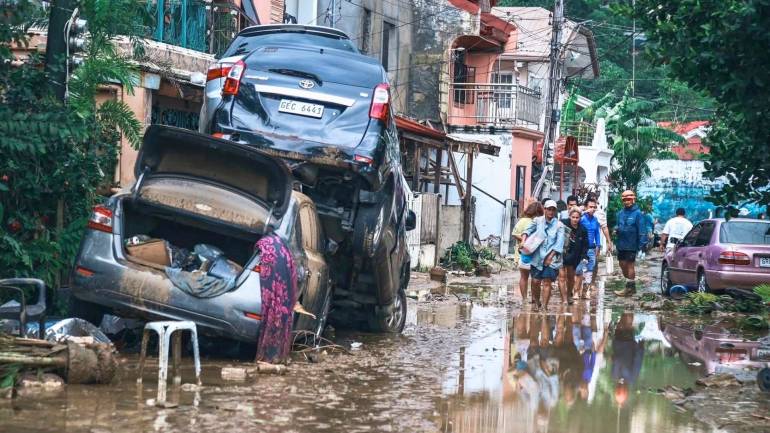
The succession of catastrophic typhoons, including a 6.9-magnitude earthquake that struck the central islands on September 30, prompted President Ferdinand Marcos Jr. to declare a one-year state of national calamity. Palafox recommended that funding for rehabilitation and recovery be recorded on a public blockchain to ensure transparency and security. He also suggested using Artificial Intelligence to further enhance accountability in post-Tino and Uwan recovery initiatives.
Felino “Jun” Palafox is a world-renowned architect and urban planner with 52 years of experience in architecture and 50 years in urban planning. He received a classical secondary education at Christ the King Seminary, Quezon City, a Bachelor of Science in Architecture from the University of Santo Tomas, and a Master’s Degree in Environmental Planning from the University of the Philippines. He also attended special courses at Harvard University.
Palafox has lectured in more than 20 countries, including at MIT and Harvard. As founder and president of Palafox Architecture Group, Inc., he is known for assisting the Catholic Church in the conceptual planning and design of religious shrines, including the Divine Mercy Shrine in Consolacion, Cebu, where he donated P4 million in PAGI services. He was also recently tapped by Archbishop Romulo Valles of Davao to design the master plan of the Divine Mercy Shrine in Samal Island, Davao del Norte.
He is credited with the iconic designs of churches in Ayala, Alabang, and Bel-Air, Makati City. During the interview, he repeatedly mentioned “Pro Deo, Terra et Patria” (for God, country, and earth) as the guiding principle of his work.
Radio Veritas Asia (RVA), a media platform of the Catholic Church, aims to share Christ. RVA started in 1969 as a continental Catholic radio station to serve Asian countries in their respective local language, thus earning the tag “the Voice of Asian Christianity.” Responding to the emerging context, RVA embraced media platforms to connect with the global Asian audience via its 21 language websites and various social media platforms.










